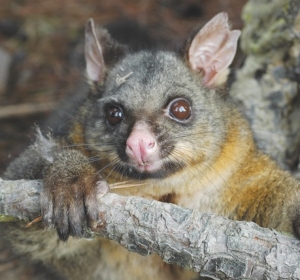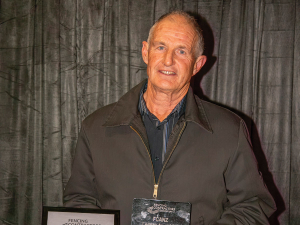Clearly it was too far for a possum or a ferret to carry it and yet TB Free has firstly rounded up 1000 possums in the infected area and tested them at enormous cost.
This strain has also reached the North Island, again via stock movement, and yet TB Free gives all its attention to possums.
In the article TB Free admits cattle movements are practically untraceable.
As Kevin Crews from TB Free tells it: “The traceback is proving quite fraught in its complexity….”
It is much easier to imagine that the local possums have carried the disease than it is to try and locate the source of infection through the “maze of stock movements uncovered by investigations into recent (Tb outbreak) cases… in Taranaki (6), Waikato (2) and Northland.”
TB Free invests tens of millions of dollars each year into possum research and possum control and, judging from the results, none of it seems to have made the slightest difference to the risk of TB in NZ. Nor is it likely to.
All the TB outbreaks in recent months have been traced to cattle movements, as have all local TB outbreaks in the last few decades.
Farmers involved in these outbreaks are seeing for themselves that money spent on possums is doing nothing to reduce the risk of TB transference.
At present it is easy to transport all kinds of cloven-footed animals from a non-TB area into TB-infected land and later to return them to their original farm to lean over the fence and lick the neighbour’s cattle. These movements are not noted by TB Free.
The dates and locations are written on an animal’s movement card but no one gets to see this card until the animal is sold. TB Free is not taking notice.
NZ’s animal movement restrictions are notoriously lax. Last year TB experts from UK remarked on how little AHB involved itself in control of stock movement.
AHB has now become TB Free and the disease seems to
have been set free again. Maybe this explains the meaning of AHB’s new title!
In TB Free’s reaction to the latest outbreaks there is no mention of tightening movement restrictions; no mention of movement control at all! “The herd infections were no fault of the South Canterbury farmers” says Kevin Crews.
If allowed, TB Free will continue to spend tens of millions of dollars a year on possums and on DNA testing. The DNA testing has already identified more than 100 different strains of TB which, so far, has only made the traceback investigation more bewildering than ever.
While stock movements continue to be unmonitored there seems little point funding TB Free.
Farmers can move animals pretty much at will and TB Free seems to show no interest until there is a new TB outbreak. “It’s just the way the modern dairy industry operates with new conversions and herd expansions” says Kevin Crews.
Farmers who have already come to the understanding that they cannot expect our country to become TB free, like Australia, until something is done to control stock movements have every right to be angry at the amount of Tb levies they have had to pay being squandered in such an unhelpful direction as possums.
• John Veysey is an ecological adviser managing the central segment of Coromandel’s Landcare Association.

















